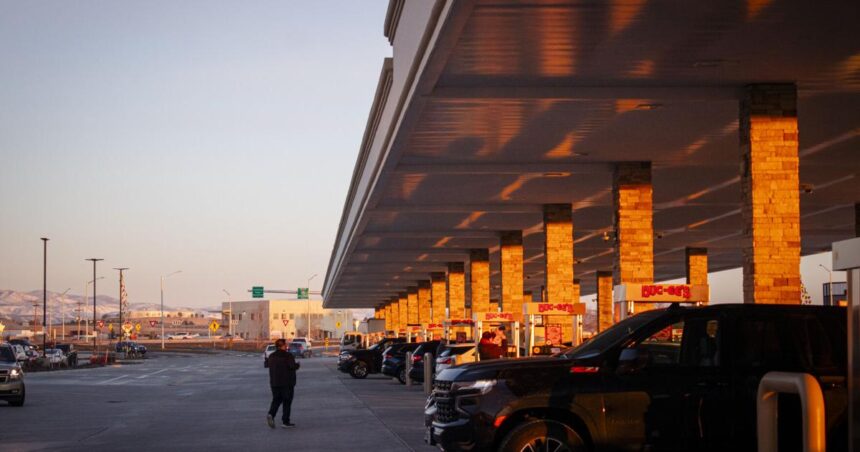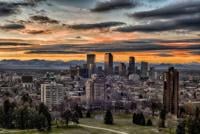Denver gas prices were on the rise again last week and one expert said it appears to be the result of “price cycling.”
The average gallon of gas cost Denver drivers 21.4 cents more last week than the week prior, finishing the week at $3.31 per gallon, according to a GasBuddy survey of 844 stations across the city.
Patrick De Haan, head of petroleum analysis for GasBuddy, attributed the rise to price cycling, a practice that he said typically repeats every one to two weeks.
“Stations undercut each other to have a competitive advantage, and when their nearby competitor matches their price drop, they undercut again,” De Haan told The Denver Gazette in an email. “Because stations can’t keep lowering prices forever, when they start losing money per gallon, some branded stations push higher to ‘restore’ their profit margin. Everyone else follows, but then the stations who raised prices first start undercutting again.”

A chart of gas prices in Denver in 2024 shows evidence of price cycling impacting the average cost of a gallon of gas, according to GasBuddy.com.
Despite the increases, it was still possible last week to find gas in Denver under $3. The cheapest station was priced at $2.89 per gallon. The most expensive was 80 cents higher at $3.69 per gallon.
The increases in Denver bucked the national trend, which saw gas prices fall 3.5 cents week over week, finishing the week at $3.55 per gallon, according to a GasBuddy survey of 150,000 gas stations nationwide.
“The news (nationally) continues to be good for motorists ahead of Memorial Day, with gasoline prices again falling, making it four straight weeks of declines for the national average as we get closer to the start of the summer driving season,” De Haan said in a news release.
De Haan said that the GasBuddy national forecast for summer travel shows mostly good news with gas prices expected to trend below record levels throughout the summer.
“While the Middle East, hurricane season, refinery maintenance and any other unexpected disruptions or weather remain wildcards, this summer is shaping up to be mostly favorable for drivers hitting the road,” De Haan said.
Colorado Gov. Jared Polis in recent weeks has raised concerns, however, that the EPA’s reformulated gas requirements could drive prices higher and create shortages at the pump in Colorado this summer.
Colorado has no direct pipeline connections to facilities that make the reformulated gasoline and some experts have predicted prices could rise as much as 51 cents to $1 per gallon. The EPA, however, predicted the reformulated gas would only add about 3 cents more per gallon.













